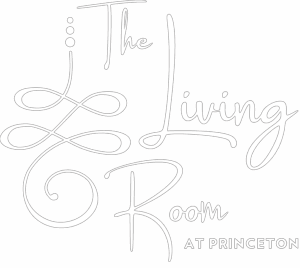A Link Between Ozempic and Alcohol Cravings
Ozempic (semaglutide), a medication for type 2 diabetes and weight loss, may also help reduce alcohol cravings. Emerging research suggests it affects the same brain reward systems involved in compulsive drinking.
This article from The Living Room examines Ozempic’s potential to reduce alcohol cravings and what FDA approval could mean for treating alcohol addiction.
What Is Ozempic and How Does It Work?
Ozempic, or semaglutide, is a prescription medicine originally approved to treat type 2 diabetes. It’s part of a class of drugs called GLP-1 receptor agonists, which mimic a natural hormone that helps regulate blood sugar and appetite.
The Primary Effects of Ozempic
- Appetite Control: Signals the brain to reduce hunger and cravings.
- Regulates Blood Sugar: Boosts insulin and lowers sugar production.
- Slows Digestion: Delays digestion to stabilize blood sugar and prolong fullness.
What the Research Says About Ozempic and Alcohol Misuse
Ozempic may be able to help people control their drinking by changing how the brain responds to cravings and rewards. In a recent study published in JAMA Psychiatry, people who took a low dose of Ozempic had fewer urges to drink and reported fewer heavy drinking days compared to those who took a placebo. They even drank less during testing sessions, and some who smoked saw a drop in cigarette use too.
Earlier lab research from the NIAAA (National Institute on Alcohol Abuse and Alcoholism) found similar results—Ozempic reduced binge drinking in animals. Experts think the drug’s effect on appetite and dopamine may help explain why cravings go down.
Ozempic isn’t yet approved to treat alcohol addiction, but these early results suggest it may become a useful tool in medication-assisted treatment (MAT) for alcoholism. More studies are underway to figure out how best to use it safely and effectively for people who struggle with alcohol.
How Ozempic Might Help with Alcohol Addiction
If further research and clinical trials lead to FDA approval to use Ozempic to curb alcohol cravings, then it could become a tool in medication-assisted treatment for alcohol addiction.
Much the way naltrexone (Vivitrol), acamprosate (Campral), and sometimes disulfiram (Antabuse) are used in medication-assisted treatment (MAT) as part of a broader addiction treatment plan—-Ozempic may find a place in the clinician’s “toolbox”.
Ozempic may also be helpful for people who don’t have an alcohol use disorder, but want to reduce their drinking and seek something to back them up so they don’t have to rely on willpower alone.
Why Medication Alone Cannot Manage Alcohol Use Disorder
Ozempic makes an exciting promise for helping people cut back on alcohol or quit drinking entirely. But while it could become a useful tool in treatment, it’s crucial to understand that there’s no “magic pill” for alcohol use disorder (AUD) and likely never will be.
Addiction is Complex
Addiction is complex. Real, lasting change comes from within, and it takes time and purposeful effort. Recovery from alcohol addiction begins with understanding the problem and identifying triggers.
Next, we learn to change unhelpful thinking patterns and take on more constructive thinking. Processing past trauma and attending to any co-occurring mental health disorders are also an essential part of the equation.
Recovery is a Lifestyle
Medications like Ozempic might help some people manage cravings, but they’re just one part of the bigger picture. Overcoming an AUD begins with addiction treatment that sparks self-awareness and insight.
Recovery blossoms when it’s continually attended to, like a rose garden. That means adopting a recovery mindset and lifestyle for the long haul. A complete solution to the cunning, baffling and powerful problem of alcoholism will never come from a pill bottle alone.
Why medication will always be an incomplete solution to addiction:
- Medications control symptoms, they cannot bring about psychological realizations or profound changes in viewpoints.
- Alcohol addiction is complex. Treating AUD successfully for positive long-term outcomes calls for multi-layer solutions.
- There are no shortcuts to lasting changes in thought, behavior and belief. They can only come about through persistence, guidance and a willingness to change.
Where Do We Go Next with Ozempic for Alcohol Cravings?
For now, we must take a wait-and-see posture. Pharmaceutical research and drug trials take time. The FDA won’t approve medications for use until they have been definitively shown to be safe and effective in large clinical studies with human participants. We’re not there yet.
You won’t see Ozempic available to curb alcohol cravings within the next few months. But it probably won’t be a decade either. It’s possible we could see Ozempic being used in MAT for alcohol addiction within 3-5 years.
What needs to happen before Ozempic is approved to treat alcohol cravings:
- Larger human trials with more diverse participants
- Clear dosing guidelines specific to AUD
- Longer treatment periods to assess safety and sustained impact
- Replication of results across multiple studies and institutions
Wellness and Serenity Await at The Living Room
The Living Room at Princeton is perhaps New Jersey’s most innovative alcohol use disorder treatment program. Our unique blend of evidence-based clinical care methods is precisely balanced by our holistic approach to addiction care. Our mission is simple. To both heal and empower the people entrusted to our care to manage their own conditions and to grow and heal.
Let’s talk about what The Living Room can do for you or the one you love, today.

